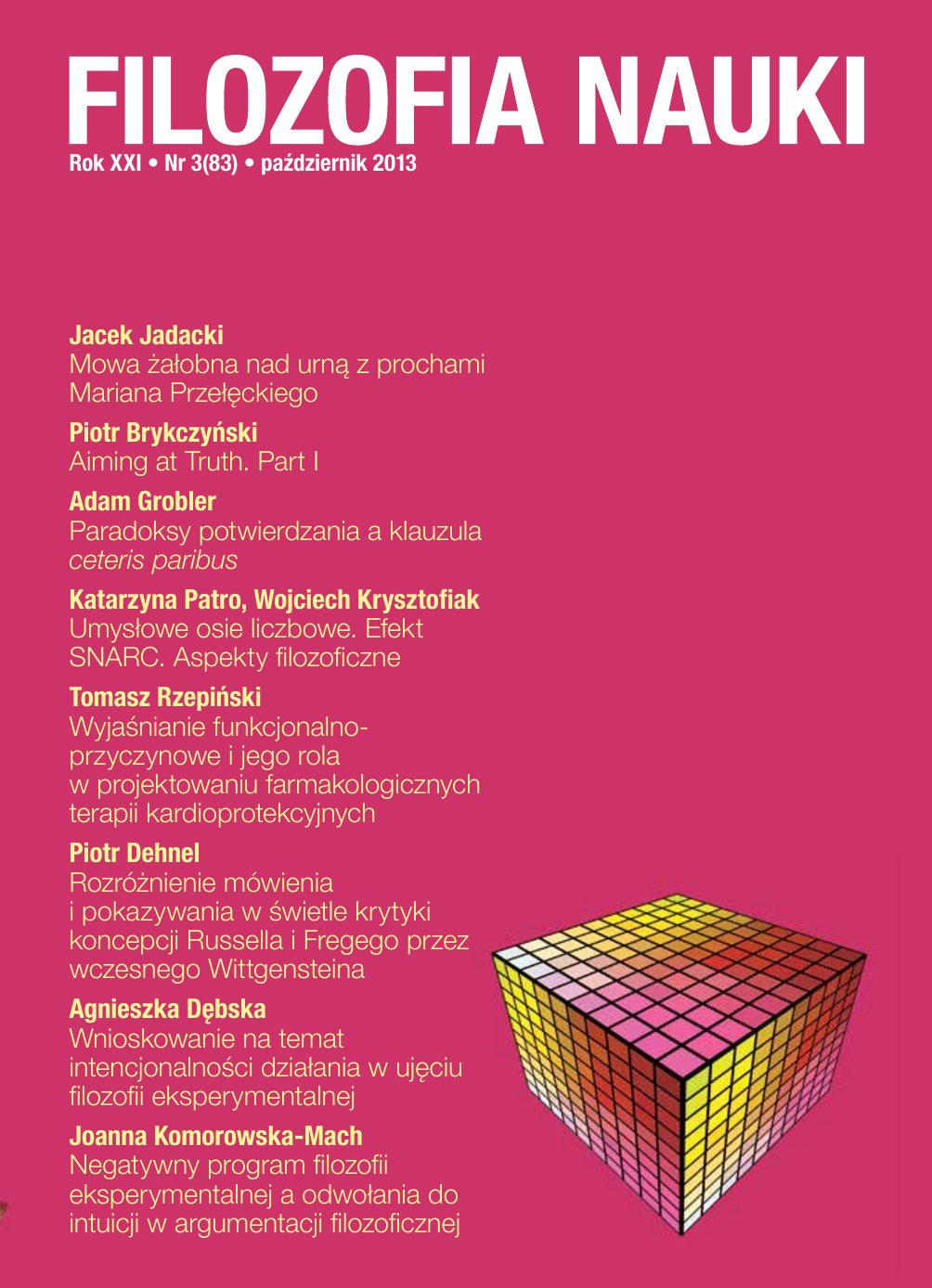Paradoxes of Confirmation and the Ceteris Paribus Clause
Keywords:
inductive reasoning, instant confirmation, ceteris paribus clauseAbstract
Well-known paradoxes of confirmation put the validity of inductive reasoning of any kind into question. Nevertheless, the proponents of hypothetical-deductive or abductive method make some use of inductivist motifs. If Popper is careful enough to distinguish between corroboration and confirmation, Lakatos quite straightforwardly maintains that falsification of one hypothesis is a confirmation of another. Next, Harman's reintroduction of abductivism long after Peirce's invention is, in fact, an attempt at grounding the inductive method in the principle of inference to the best explanation. In the paper, I claim that paradoxes of confirmation arise because of excessively formal analysis of scientific reasoning. It is commonly neglected that scientific hypotheses inevitably assume the ceteris paribus clause. Taking this into account gives the required solution to the paradoxes and sheds new light on the nature of inductive reasoning and its place in the scientific method.Downloads
Published
2013-09-01
How to Cite
Grobler, A. (2013). Paradoxes of Confirmation and the Ceteris Paribus Clause. The Philosophy of Science, 21(3), 37–44. Retrieved from https://fn.uw.edu.pl/index.php/fn/article/view/729
Issue
Section
Articles















 Filozofia Nauki/The Philosophy of Science | ISSN 1230-6894 | e-ISSN 2657-5868
Filozofia Nauki/The Philosophy of Science | ISSN 1230-6894 | e-ISSN 2657-5868